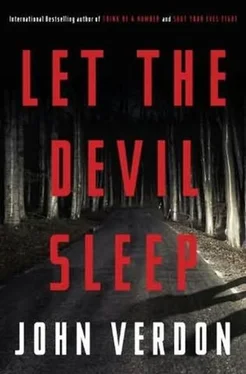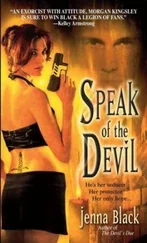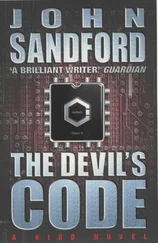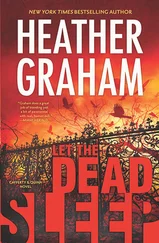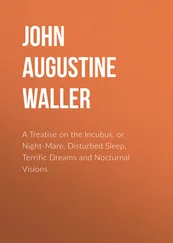Nothing came to mind.
Nothing but an irritatingly simplistic aphorism.
You play the hand you’ve been dealt.
What the hell was in that hand anyway?
He concluded that most of his cards were garbage. Or unplayable with the near-zero resources at his disposal.
But he had to admit that he did have one wild card.
It might be worth something, or it might be worth nothing.
• • •
The sun rose behind a morning haze. It was still low in the sky when the house phone rang. Gurney got up from the table and went into the den to answer it. It was someone from the clinic, asking for Madeleine.
As he was about to take the handset to her in the bedroom, she appeared at the den door in her pajamas, extending her hand for it as though it were a call she’d been expecting.
She glanced at the ID screen before she spoke-in a pleasantly professional tone that contrasted with the sleepy look on her face. “Good morning, this is Madeleine.”
She then listened quietly to what was evidently a long explanation of something-during which Gurney returned to the kitchen and put on a fresh pot of coffee.
He heard her voice again only briefly toward the end of the call, and only a few of her words clearly. It sounded to him as if she was agreeing to do something. A few moments later, she appeared at the kitchen doorway, regarding him with the previous night’s worry back in her eyes.
“How’s your hand?”
The lidocaine nerve block they’d given him prior to his nine stitches had worn off, and the lower half of his palm was throbbing.
“Not too bad,” he said. “What are they asking you to do now?”
She ignored the question. “You should be keeping it elevated. Like the doctor said.”
“Right.” He raised his hand a few inches above the sink island, where he was waiting for the coffee to brew. “Did they have another suicide?” he asked, rather too jokily.
“Carol Quilty resigned last night. They need someone to fill in today.”
“What time?”
“As soon as I can get there. I’m going to take a shower, have a piece of toast, and off I go. Will you be all right here alone?”
“Of course.”
She frowned and pointed at his hand. “Higher.”
He raised it to eye level.
She sighed, gave him a silly little “attaboy” wink, and headed for the shower.
He marveled for the thousandth time at her innate cheerfulness, her perennial ability to accept the reality of whatever had been placed in front of her and address it with an attitude far more positive than his own.
She faced life as it was and did the best she could.
She played the hand she’d been dealt.
Which made him think again about his wild card.
Whatever it might be worth, he needed to do something with it soon. He had to play it before the game was over.
He had the sinking feeling that it might not be worth a damn thing. But there was only one way to find out.
His “wild card” was his access to the eavesdropping equipment that had been installed in Kim’s apartment. Perhaps by the Good Shepherd, who perhaps was still monitoring its transmissions. If both of those assumptions were valid-and both were big ifs-that equipment could provide a channel of communication. A way of talking to the killer. An opportunity to send a message.
But what kind of message should it be?
It was a simple question-with an unlimited number of answers.
All he had to do was figure out the right one.
Shortly after Madeleine left for the clinic, the den phone rang again. The ID announced it was Hardwick. The raspy voice said, “Check the Manchester Union Leader ’s online archives. They did a series on the White Mountain Strangler case back in ’91. Betcha find a shitload of what you want. Gotta go piss. Take care.”
The man certainly had his ways of saying good-bye.
Gurney went to his computer and spent an hour wading through the online archives not only of the Union Leader but of other New England papers that had reported extensively on the Strangler’s crimes.
There had been five attacks in two months, all fatal. All the victims were women, and all had been strangled with white silk scarves, which were left knotted around their necks. The common factors among the victims were more circumstantial than personal. Three of the women had lived alone, and they had been killed in their homes. The two others worked late in isolated environments. One had been killed in an unlit parking area behind a crafts store she managed, the other in a similar area behind her own small flower shop. All five attacks occurred within a ten-mile radius of Hanover, home of Dartmouth College.
Although a sexual motive is often present in the serial strangulation of women, there were no signs of rape or other abuse. And the “victim profile” struck Gurney as odd. In fact, there really wasn’t any. The only physical factor the women appeared to have in common was that they were all fairly small. But they looked nothing alike. Their hairstyles and clothing styles were quite diverse. They represented a curious socioeconomic mix-a Dartmouth student (Larry Sterne’s girlfriend at the time), two shopkeepers, a part-time cafeteria aide in a local grammar school, and a psychiatrist. They ranged in age from twenty-one to seventy-one. The Dartmouth student was a blond WASP. The retired psychiatrist was a gray-haired African-American. Gurney had rarely seen such variation among the victims of a serial killer. It was hard to discern in these women the killer’s fixation-the obsession that had motivated him.
As he was pondering the peculiarities of the case, he heard the upstairs shower running. A little while after that, Kim appeared at the den doorway with a terribly anxious expression.
“Good morning,” said Gurney, closing down his computer search.
“I’m so sorry for getting you into this,” she said, close to tears.
“It’s what I used to do for a living.”
“When you did it for a living, no one burned down your barn.”
“We don’t know for sure that the barn has anything to do with the case. It might have been some-”
“Oh, my God,” she broke in, “what happened to your hand?”
“The arrow that I left on the sideboard-I leaned my hand on it in the dark last night.”
“Oh, my God,” she repeated, wincing.
Kyle appeared in the hallway behind her. “Morning, Dad, how are-” He stopped when he saw the bandage. “What happened?”
“Nothing much. Looks worse than it is. Want some breakfast?”
“He cut it on that nasty arrow thing,” said Kim.
“Jeez, that thing’s like a razor,” said Kyle.
Gurney stood up from his desk. “Come on,” he said, “we’ll have some eggs, toast, coffee.”
He was trying to sound normal. But even as he smiled casually and led the way out to the kitchen table, the question of what to say about the latest murder or about the GPS trackers began to fill his mind. Did he really have a right to keep all that to himself? And why was he doing it?
Doubts about his own motivations had always been the principal termites undermining whatever peace of mind he was temporarily able to achieve. He tried to force his attention back to the mundane details of breakfast. “How about starting with some orange juice?”
Apart from a few isolated comments, breakfast was a quiet affair, almost awkwardly so. As soon as they’d finished eating, Kim, in her transparent eagerness to occupy herself with something, insisted on clearing the table and washing the dishes. Kyle absorbed himself in checking his text messages, appearing to go through all of them at least twice.
In the silence, Gurney’s mind went back to the crucial question of how to play his wild card. He had only one chance to get it right. He had an almost physical sense of time running out.
Читать дальше
